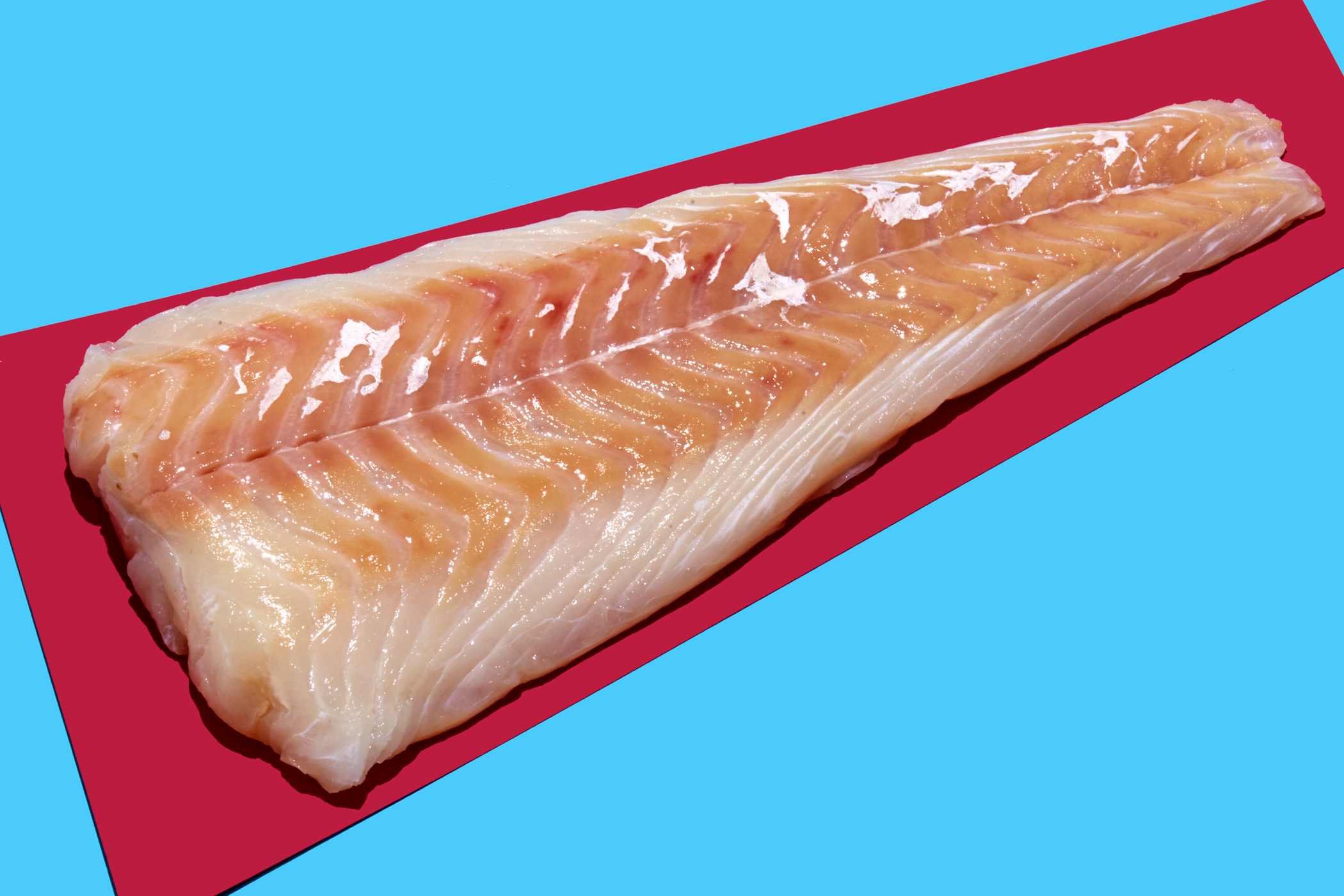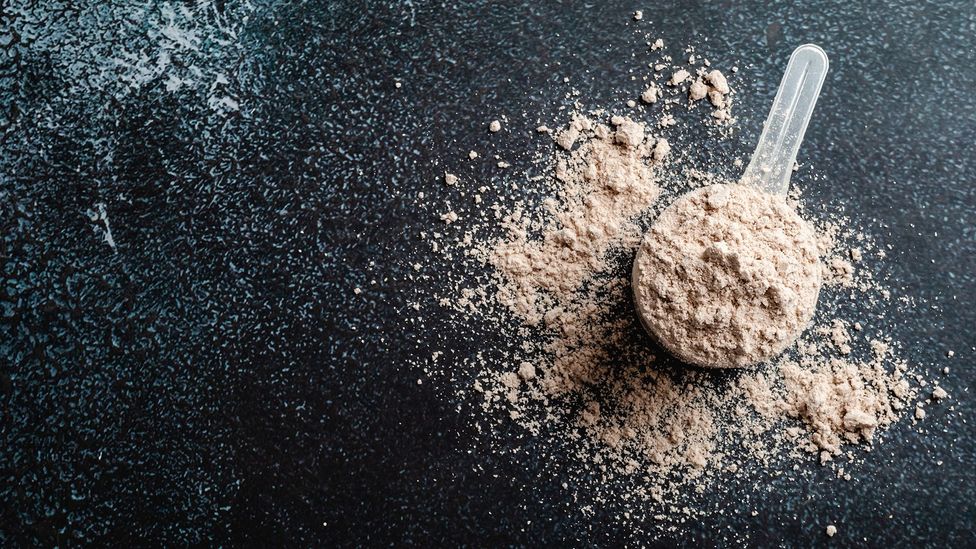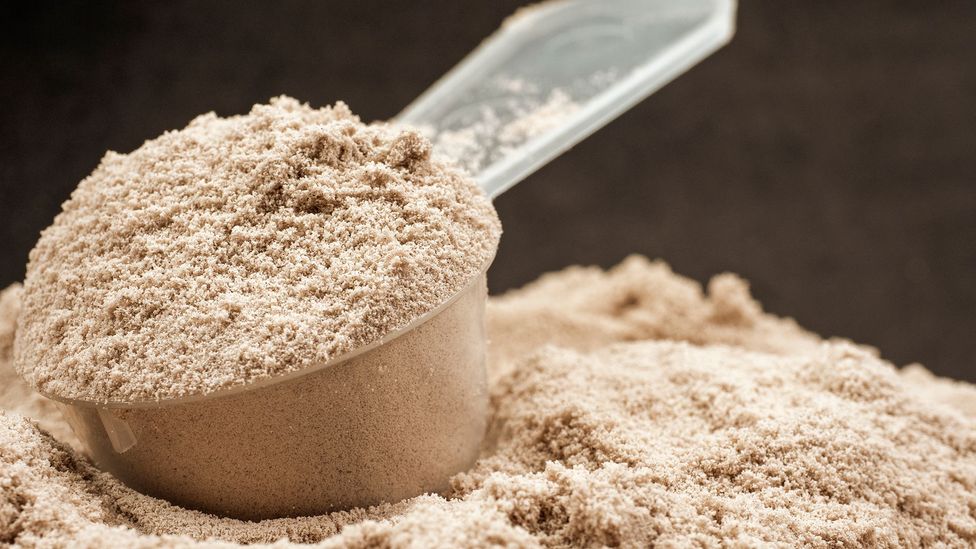Should You Eat More Protein?

Scroll through TikTok or Instagram and you’ll be inundated with protein-centric recipes. Maximizing protein is a huge trend right now on social media—and not just in the usual suspects, like your dinner or post-workout smoothie. High-protein coffee, desserts, snacks, and more are now on the table.
High-protein recipes aren’t new, especially for gym-goers and proponents of a hearty breakfast, but they’ve exploded on social media over the past few years. Why is there such an emphasis on protein right now? And do you really need to focus on getting more? Here’s what experts say.
Why is protein important – and why is it so hot right now?
Protein is one of the body’s three macronutrients: those your body needs in the largest amounts in order to perform. “We need it for many functions, but particularly to build muscle, to build a lot of the tissues that we have in our bodies,” says Andres Ardisson Korat, a scientist at the Jean Mayer USDA Human Nutrition Research Center on Aging at Tufts University.
Unlike carbohydrates and fat—the other two macronutrients—protein doesn’t come with the same kind of cultural stigma.
“I think people often view protein as ‘the healthiest macro’ in comparison to carbs and fat,” says Kylie Sakaida, registered dietitian, social media content creator, and author of the forthcoming cookbook So Easy So Good.
Protein’s health halo, in other words, keeps people coming back for more. Sakaida, who shares recipes on Instagram, TikTok, and YouTube, has noticed more traffic and interest on her own videos when they feature higher protein. She attributes the rise in interest on these videos to people looking to manage their weight and get fitter.
Americans’ obsession with protein isn’t new, but now, long-standing grocery brands are creating higher protein versions of their usual fare while a flood of new, smaller brands have entered the market selling high-protein everything. (You can now find high-protein chips, sweets, bread, and even ramen.) Chobani, a brand known for its naturally protein-rich Greek yogurt, launched a higher protein version of their single-serve yogurt in October, and is soon rolling out drinkable yogurt with 30 grams of protein—three times more than its standard drinkable yogurt.
Niel Sandfort, chief innovation officer at Chobani, says the lean towards protein started in the late 2010s, and the company has seen steady growth in protein shakes, bars, and similar products. Its recently launched high-protein options were designed to appeal to athletes, but Sandfort was surprised to find that baby boomers, people in their 40s, and younger women were big buyers as well.
American anxiety about weight loss—ramped into overdrive by powerful new weight-loss drugs—is probably also a factor driving increased interest in protein. “I think a lot of people are looking into managing their weight, and they’re being told to eat high-protein diets if they want to gain muscle and lose weight,” says Sakaida. “Focusing on protein can help you feel more satiated and therefore can help you cut down on certain calories.”
Do you actually need more protein?
U.S. guidelines recommend that people get a minimum of about 0.8 grams of protein per kilogram of body weight. “This is what is needed to meet your basic nutritional requirements,” says Yasi Ansari, a registered dietitian and spokesperson for the Academy of Nutrition and Dietetics. “Most people need more than this.” Older adults need closer to 1.2 grams, while active individuals would need closer to 1.2-1.7 grams.
Technically, Americans on average consume enough protein, Korat says—though a few groups may not get enough, like those at lower income levels or older adults.
“Overall it does seem that older adults need to focus more on protein,” he says. For them, “it’s particularly beneficial to slow down the loss of muscle mass and to preserve their physical function.”
Other groups that may need more protein than they currently consume include women—particularly pregnant and breastfeeding women—athletes, and people undergoing certain types of recovery like chemotherapy. People in this last category “may actually need higher amounts of protein to support their healing recovery and to make sure that they’re combating any malnutrition concerns,” says Ansari.
What type of protein is best?
Animal sources include poultry, beef, dairy, seafood, and eggs, while plant sources include tofu, beans, nuts, vegetables, and whole grains. Some plant proteins are incomplete, meaning they don’t contain all nine amino acids the body needs through food and must be mixed and matched to achieve total nutrition.
Recent studies suggest that when people add plant protein to their diet—especially when it replaces calories from refined carbohydrates—it’s “really beneficial in terms of promoting healthy aging,” Korat says. Plant proteins have “beneficial nutrients, fiber, vitamins, minerals, other micronutrients.”
Read More: The Supplements Doctors Actually Think You Should Take
“Although not all plant protein sources are complete, they’re usually high in fiber, they’re usually lower in saturated fat, they typically contain healthy fats, and they might also be high in certain vitamins—so I think there is a place in the diet for both,” says Sakaida. “I always try to tell people to add in more plant protein if they’re not already doing so.”
For those concerned about some plant proteins being incomplete, a varied diet is the key.
“Some plant proteins are lower in certain amino acids,” Ansari says. “By focusing on variety at meals and snacks throughout the day and eating enough, individuals can meet their protein needs on a predominantly plant-based diet.
When it comes to protein powders, Ansari has a few tips when choosing one:
- Seek out products that are budget friendly and meet your lifestyle and diet preferences.
- Choose one that’s tested by a third party, such as NSF or Informed Choice, to ensure that they contain what they claim to and aren’t adulterated.
- Pick a powder that has at least 20 grams of protein per serving.
- Choose one in an isolated form, like whey protein isolate, which has a higher and more concentrated form of protein that can help maximize gains for those looking to put on muscle. It can also be easier to digest for people with sensitivities.
The case for more protein – and what to watch for.
While most Americans do consume enough protein, it may still be beneficial to consider increasing your intake if you think you might be deficient.
“On social media, there are so many types of trends out there, and I think that the high-protein diet trend is definitely one of the more helpful ones for people rather than one of the more harmful ones,” says Sakaida.
Ansari particularly likes the trend of eating more protein at the start of your day. “Protein can help increase satiety, which means it helps us feel full for a longer period of time,” she says. “I love that we can increase feeling more satisfied, feeling full, making better food choices throughout the day, and then being able to listen to our hunger and fullness cues.”
Read More: Is Intermittent Fasting Good or Bad for You?
There are a few caveats, however. Maximizing protein at the expense of other nutrients—like carbohydrates—could lead to other health problems. “You’ll start noticing that you may start losing muscle mass, because if you’re not getting enough fuel from carbohydrates, your body can break down from muscle to use that as fuel,” says Ansari. You’ll also miss out on the fiber and other nutrients that adequate carbs provide.
Eating so much protein that you exceed your caloric needs can also lead to weight gain, she says, and high-protein diets that center on red meat, saturated fats, and processed food can increase the risk of heart disease.
For people with certain health conditions like kidney disease, high-protein diets and foods can be more harmful than helpful, Ansari says, since too much protein can tax an under-functioning kidney. Work with a registered dietitian and a physician to address how much to consume.
As always with diet, it’s important not to fixate on any single nutrient to the exclusion of others. Balance is key, “even if you’re following a high-protein diet,” Sakaida says.
+++++++++++++++++++++++++++++++++++++++++++++++++++++++++++++++++++++++++++
Protein powders: Are they bad for your health?

When I go into my local health food store, there’s one corner that’s always been a bit of a mystery to me – the shelves packed with dozens of white plastic tubs filled with powdered protein supplements. In the changing room at the gym, however, there are plenty who sing their praises, explaining that they simply add a scoop of powder to milk or to a smoothie, work out and then build extra muscle.
With their popularity reaching way beyond bodybuilders and professional athletes, now seems like a good time to look at the evidence around protein powders.
Some people use a protein drink as a snack between meals or even use it instead of a meal if they’ve not got time to eat. People eating a vegan diet sometimes use the supplements to up their protein intake if they feel they’re not getting enough. And there are hundreds of new food products in supermarkets – from cereal bars to ice cream and chocolate – which signal their protein-containing credentials in bold letters.
There’s a range of strengths available, with the highest doses aimed at bodybuilders. The powder might come from an animal source such as eggs or milk, or from plants. For example, protein from peas, potatoes, rice and soybeans can all be extracted and powdered, sometimes with added flavourings to make them taste good.
Protein is big business. But how many of us really need any extra?
There’s no doubt that protein is an essential part of the diet. We need it to build and repair muscles, to help our bones stay strong, to maintain the immune system and to keep our brains, hearts and skin doing what we need them do.
You might also like:
- What is the lowest-carbon protein?
- We don’t need nearly as much protein as we consume
- Are nut butters bad for your health?
Foods such as eggs, milk, yoghurt, fish, lentils, meat, soya, nuts and seeds are all rich in protein and the majority of adults in high-income countries do get at least the daily amount of protein recommended by health authorities.
In a meta-analysis of 49 studies, the average protein intake from people’s diets at the start of the research was more than 75% greater than the US and Canadian recommendations, for example. There are some scientists in the field such as Stuart Phillips from McMaster University in Canada who argue that the recommended levels might not be high enough for everyone.
One of the difficulties is knowing how much you as an individual might need. The answer depends on your age, health and exercise routine, so the standard recommendation may not apply to you. Some older people, for example, find they don’t have much appetite which can lead them to eat so little that they don’t get enough protein from their diet. And if you’re a professional endurance athlete you more need more protein than the average adult.

Consuming protein powder won’t actually build muscle unless you combine it with resistance exercise, studies show (Credit: Getty Images)
Since we know that protein from diet builds muscle, keeps bones strong and protects your immune system, is it a case of the more the better? Could all of us benefit from a little more? Or are there risks in adding extra protein in this way?
Luckily there have been some trials than can guide us. For the most part they tend to show that protein powders can indeed help to build muscle, as many claim. But the catch is that this only works if you also do some form of resistance exercise, such as using weight machines. If the muscles aren’t exercised, the extra protein won’t do anything.
In one meta-analysis from 2014, researchers combined the data from 14 randomised controlled trials where, for example, half the people consumed powdered whey protein, which is made from the liquid left over when milk is made into cheese, and half had a placebo drink. They found that as long as people also did resistance exercise, then consuming protein powders did increase their lean body mass, but if they simply drank the drinks without exercise there was no statistically significant increase.
One of the difficulties in trying to compare studies is that some are conducted with people who are obese, others with older people, and still others with younger gym-goers, which makes it hard to generalise.
Someone consuming extra protein and exercising two or three times a week will see a minimal benefit while those working out four or five times a week might see a small benefit
A more recent paper bringing together the best studies, published in 2022, focuses on trials done with healthy adults who were not overweight. Once again protein powder did make a difference, with gains in both lean body mass and in lower body strength, provided people were also doing resistance exercise. There was also a slight effect on people’s ability to do bench presses, but it didn’t make a difference in other tests of strength, such as handgrip. So it’s not some magic powder which will suddenly make you strong. You have to put the work in.
Even after examining all these studies, the authors say the optimal amount of protein still isn’t clear, although it was interesting to see that people over the age of 65 didn’t need to consume quite as much powder to make a difference.

Extra protein may only be of use if you are exercising four or five times a week (Credit: Getty Images)
One of the authors of this review, Stuart Phillips, has spent two decades studying the impact of our diets on our muscles. Speaking on the BBC’s Food Programme last year, he summed it up like this: someone consuming extra protein and exercising two or three times a week will see a minimal benefit while those working out four or five times a week might see a small benefit. So unless you’re very dedicated, a professional athlete perhaps, it’s unlikely to make that much difference.
For those who still want to go down the supplement route even for a very small benefit, there’s often talk of when it’s best to take it – before you head to the gym, or afterwards while your muscles are recovering. There’s also debate on which kind to take. Some swear by whey protein, other by plant sources. In the 2018 meta-analysis I mentioned above featuring 49 studies, the overall conclusion was that neither the timing nor the type of protein really mattered.
Of course if you do want to consume protein powders you also need to be sure they aren’t doing you any harm. The ingredients vary between different products. As well as protein some powders contain added sugars, flavouring and vitamins. High amounts of sugar could lead to spikes in blood sugar and also, of course, weight gain.
We don’t know what the long-term impact might be of adding large quantities of protein powders to your diet on a daily basis
Even more concerning are the stories online about fit young people having heart attacks at the gym and talk of whether protein powders might have contributed. With individual cases like these it’s difficult to know what underlying heart problems the people affected might have had. So we need to turn to research once again.
Alas, research on this is sparse. In fact, you have to look to mice studies to find out much at all, and even then there’s very little. But there was a study conducted in mice in 2020 published in the journal Nature Metabolism from researchers at Washington University School of Medicine in St Louis in the US. The researchers fed mice a high-fat diet to deliberately induce the build-up of plaque in their arteries. But half of the mice were also fed three times as much protein as the other half were given. The high-fat, high-protein group did not gain as much weight, but worryingly they had 30% more plaque in their arteries.

Older people don’t need to eat as much protein as was previously thought, recent studies suggest (Credit: Getty Images)
The problem is that it’s hard to generalise from mice on a high-fat diet taking in large amount of protein to young human gym-goers adding a scoop of powder to a drink. So it’s early days for this kind of research. But it is true, of course, that we don’t know what the long-term impact might be for the heart or the kidneys or any other part of the body of adding large quantities of protein powders to your diet on a daily basis.
Some argue it could bring health benefits quite separate from the muscle gain. A meta-analysis of nine randomised controlled trials found the people given protein powders lost more weight and saw an improvement in blood pressure and cholesterol levels. But the people in this study were overweight or obese, so we don’t know if the same beneficial impacts would be seen in those of a healthier weight.
Dieticians are often keen to emphasise that ideally we look to our food to get everything we need before turning to supplements
At Reading University, Agnes Fekete found – in an admittedly small study with just 27 people – that if their blood pressure was just a little on the high side, then extra whey protein could lower it. Meanwhile, a new paper combining the results of 31 trials found that if people took whey or soy powder there was a reduction in two markers of inflammation in the body.
This is interesting because there are high levels of inflammation in people whose muscles become particularly weak in old age, which raises the question of whether there might be some way of trying to prevent this using protein powders.
But to really know whether there are health benefits beyond the small effect on muscle mass provided it’s accompanied by exercise, we need more trials conducted over longer timespans.
Time will tell, but eventually we’ll discover whether it’s the fit gym-goers or the older people with small appetites who stand to gain from consuming protein powders. Dieticians are often keen to emphasise that ideally we look to our food to get everything we need before turning to supplements. Intact food seems to be the best for us, and yet we still don’t know exactly why.
